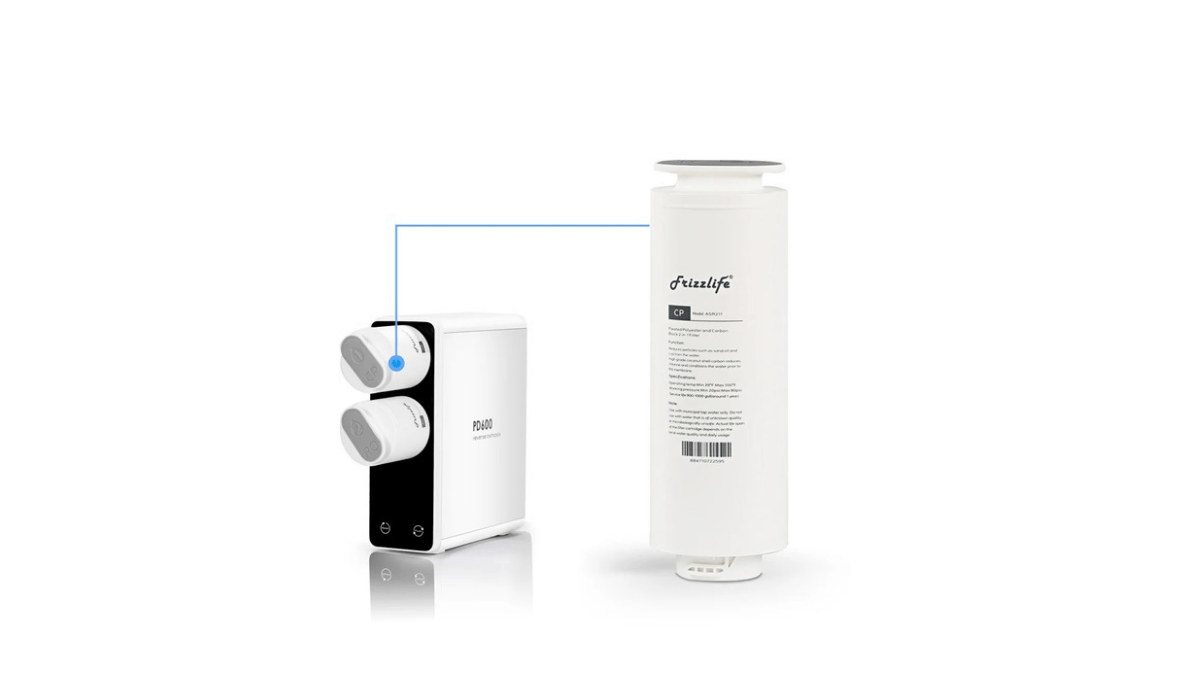
How Long Does a Countertop Water Filter Last? A Complete Guide
Ever wondered if your countertop water filter is still doing its job—or just pretending? Short answer: 2 months to 2 years, depending on type and care. Ignore it too long, and you might be sipping more than just water! Stay tuned for must-know installation and maintenance of countertop water dispensers tips to keep your filter fresh.
How Long Does a Countertop Water Filter Last?
Introduction: Understanding Filter Lifespan
Ever wondered if your countertop water filter is still doing its job—or if you're just drinking through a fancy piece of plastic?
The truth is, countertop water filters don’t last forever. Depending on the type, they can last anywhere from 2 months to 2 years. But here’s the thing—ignoring replacements could mean your water is no longer as pure as you think.
So, what affects how long your filter lasts? And how can you make sure you’re getting the most out of it? Let’s dive in.
Factors Affecting Filter Longevity
Type of Filter
Not all filters are created equal. Activated carbon filters need replacing more often, usually within a few months, while reverse osmosis membranes can last up to two years.
The filter you choose will determine how frequently you’ll be changing it. So, if you’re after a low-maintenance option, you might want to pick a filter with a longer lifespan.
Water Quality
If your tap water is packed with sediment, chlorine, or heavy minerals, your filter is working overtime. This means it will clog up faster and need replacing sooner.
Live in a hard water area? Your filter won’t last as long as it would in a place with softer water.
Usage Frequency
A filter in a single-person flat won’t wear out as quickly as one in a bustling family home where the kettle is always on.
If you’re using more than 3 gallons of filtered water a day, expect to swap out your filter sooner than advertised. The more you use it, the quicker it fills up with impurities.
Average Lifespan of Different Filter Types
Activated Carbon Filters
- Lifespan: 2–6 months
- Best for: Removing chlorine, VOCs, and improving taste
- Common brands: Brita, Soma, ZeroWater
- Signs of replacement: Water tastes off, flow slows down
Reverse Osmosis Filters
- Lifespan: 6–24 months (Membranes last 2–3 years; pre/post-filters: 6–12 months)
- Best for: Removing heavy metals, fluoride, and other contaminants
- Common brands: iSpring, Waterdrop Filter, Express Water
- Signs of replacement: Water pressure drops, metallic taste appears
Ceramic Filters
- Lifespan: 6–12 months
- Best for: Removing bacteria, sediment, and microplastics
- Common brands: Doulton, Berkey
- Signs of replacement: Visible dirt on the filter, slow water flow
UV Light Filters
- Lifespan: 12–24 months (UV bulb lasts 8,000–10,000 uses)
- Best for: Killing bacteria and viruses without altering taste
- Common brands: SteriPEN, Acuva, Viqua, Hommix
- Signs of replacement: Bacteria reappears in water tests
Signs It's Time to Replace Your Filter
Reduced Water Flow
Is your once-speedy water flow now down to a dribble? That’s a classic sign of a clogged filter.
Over time, all those trapped contaminants build up, restricting the flow. If your filter is struggling, it’s time for a swap.
Changes in Taste or Odour
Noticing a funky taste or a hint of chlorine? That’s your filter waving a white flag.
Once it stops absorbing impurities, your water quality goes downhill fast. Don’t ignore strange flavours—change that filter!
Manufacturer's Recommended Timeline
Each filter has an estimated lifespan, but real-world conditions can shorten it.
Even if your filter seems fine, sticking to the recommended replacement schedule ensures you’re always drinking the cleanest water possible.
Extending Filter Lifespan
Regular Cleaning and Maintenance
For ceramic and gravity-fed filters, a quick scrub can remove build-up and keep them working longer.
Monthly flushing helps clear out any trapped debris, keeping your filter in top shape.
Proper Storage
Unused filters should be stored in a dry, cool place to prevent moisture damage.
Exposing them to humidity or sunlight can degrade their effectiveness before you even start using them.
Pre-Filtration for Sediment
If your water has a lot of sediment, consider using a pre-filter.
This catches large particles before they reach your main filter, reducing strain and extending its lifespan.
Addressing Common Concerns
Filter Certifications
Worried about whether your filter is actually doing its job? Look for NSF/ANSI certifications.
These ensure that your filter has been tested and proven to remove contaminants like lead, chlorine, and bacteria.
Water Testing
Not sure if your filter is still effective? Home water test kits can help you check for common contaminants.
If test results show rising impurity levels, it’s time to replace your filter—even if it hasn’t hit the end of its official lifespan.
Conclusion: Maximising Your Filter's Performance
A countertop water filter is a great investment—if you maintain it properly.
By choosing the right filter, keeping an eye out for warning signs, and following maintenance tips, you’ll enjoy fresh, clean water for longer.
So, stay on top of replacements, and your water will always be crisp, clear, and safe to drink!
More Countertop Water Dispenser info we think you'll love
Step-by-Step Guide to Installing Your Countertop Water Dispenser
Routine Maintenance Tips to Extend the Life of Your Water Dispenser
Troubleshooting Common Issues with Countertop Water Dispensers
How Often Should You Clean Your Countertop Water Dispenser?
How do you clean a countertop water filter?
Countertop Water Dispenser Maintenance Tips
How to Clean Countertop Water Dispenser Filters at Home
Best Countertop Water Dispenser Maintenance Routine
Countertop Water Dispenser Troubleshooting Guide for Common Issues


Leave a comment